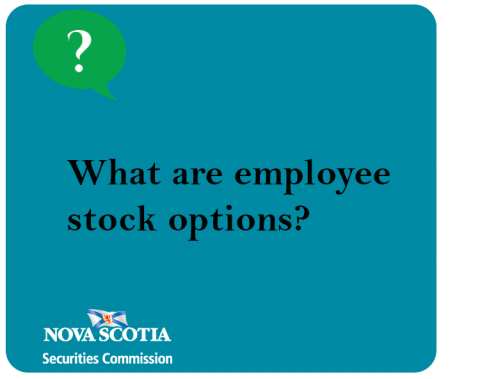Submitted by nsscadmin on

In pop culture you may have heard the term “stock options” bandied about. In TV shows or movies someone gets a job and it’s the best because they get employee stock options. So, in this context what exactly are employee stock options?
Stock options are an incentive that publicly or privately traded companies can offer their employees. It is a contract that gives an employee the right, but not the obligation to purchase shares of a stock at a set price on or before a specific date.
Typically the set price, also known as the “strike price” is lower than the current price of the stock when it is offered. For example, Company A’s stock may be priced at $15 per share but they are offering their employees the option to purchase up to 100 shares in the next six months at $12 per share.
The employee who has been offered the stock options has a few different ways they can proceed.
They can do nothing and decide not to purchase any shares.
They can immediately purchase 100 shares for $1200. This can be held or immediately sold for profit.
They can wait and watch the stock price to see if it will rise, making their option to buy even more lucrative. They still must purchase any shares before the six-month expiry date.
If allowed under their contract they could also purchase a portion of their 100-share limit and continue to watch the stock price before deciding to purchase more.
Some stock options may come with a vesting period which changes things slightly for the eligible employees. If the company institutes a vesting period employees would have their 100 shares spread out over a certain amount of time. For example, you get options to buy 100 shares, but the vesting schedule spreads them out over a five-year period. In each year over the five years an employee is allowed to purchase 20 shares per year at the strike price. After the five years have surpassed they may have purchase 100 shares.
